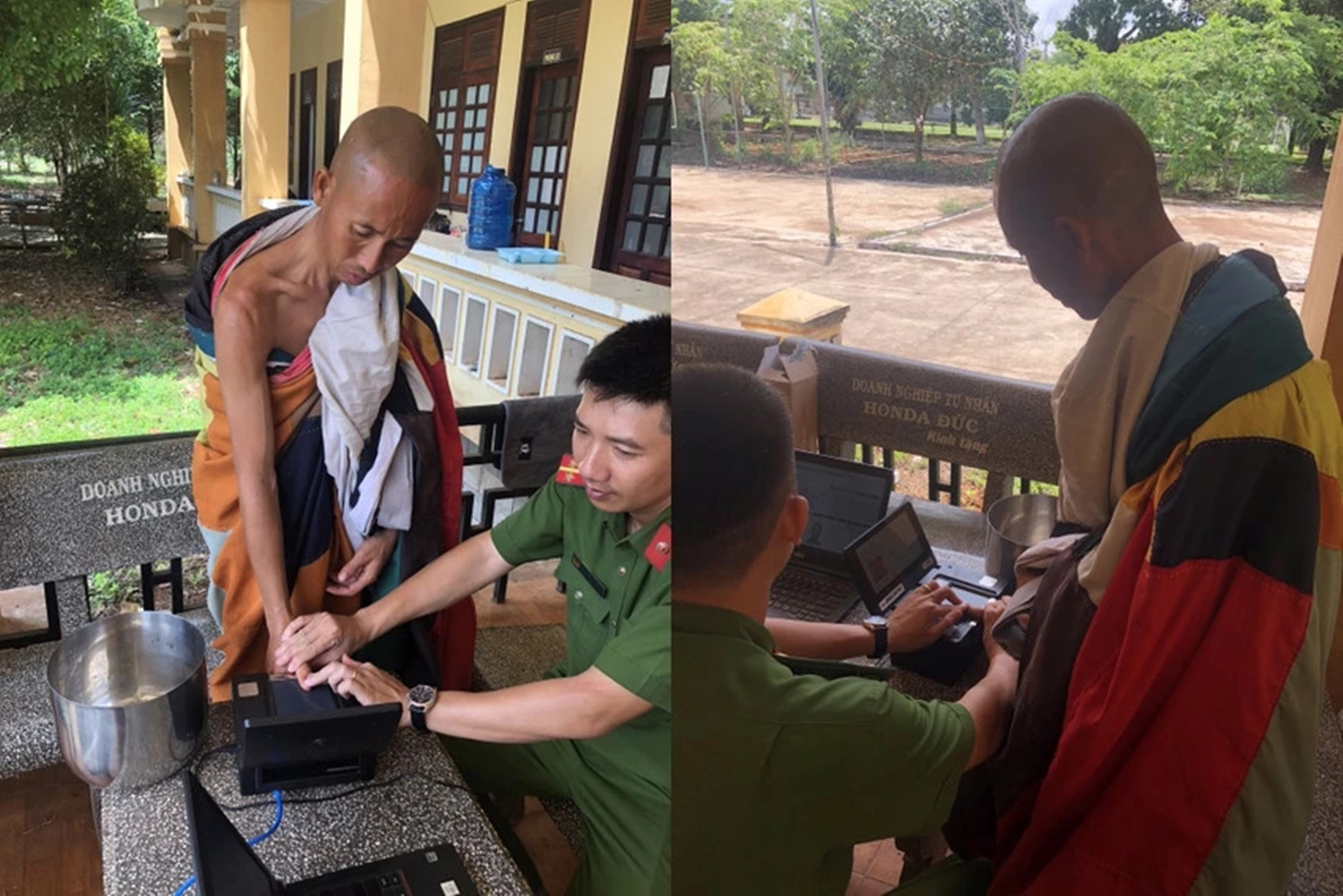Fate of 'wandering monk' Thich Minh Tue unknown after Hanoi intervention
The Buddhist leader had become famous for walking from the north to the south of Vietnam for rights. According to the authorities - who have him on file - he purposely interrupted his march. A version that does not convince activists and pro-human rights groups. A US congressman appeals to the Commission on Religious Freedom.
Hanoi (AsiaNews) - For several days now, the fate of Le Anh Tu, better known as Thich Minh Tue the ‘wandering monk’, has been shrouded in mystery. He became famous for choosing to walk from north to south, becoming a voice of peace for a Vietnam that is tolerant and respectful of civil liberties (and of worship).
In the meantime, Ta Duc Tri, a California Congressman of Asian origin, launched a written appeal to the US Commission on International Religious Freedom (Uscirf) expressing ‘concern’ about the 43-year-old Buddhist leader's condition, while calling for an investigation.
According to the official version of the Hanoi authorities, he had ‘voluntarily’ stopped walking after ‘realising’ that he could ‘threaten’ ‘social stability’. In fact, people close to him claim that he was ‘forcibly forced’ to stop the march and is now being held in an unknown location.
For weeks, Thich Minh Tue had been attracting curiosity and attention to the pilgrimage, followed on social media, in live streaming and gathering sympathy along the way, so much so that he became - despite himself - a symbol of the battle for freedom (including religious freedom) in Vietnam.
The police allegedly detained him, along with dozens of ‘followers’, in the central province of Thua Thien Hue on 2 June, and there has been no certain news since then. The official note states that he was ‘taken to the place where he was supposed to go’, identifying him with the province of Giua Lai where he had reportedly registered his residence.
Meanwhile, an image of a policeman collecting the monk's fingerprints (pictured) has gone viral on the web, although the police neither confirm nor admit to having detained the Buddhist leader.
‘Recent media and witness reports indicate that the communist regime in Vietnam arbitrarily forced him to end his journey and cease his religious practices,’ MP Ta Duc Tri wrote in his letter to the Uscirf.
In the missive, which he posted on social media, he emphasised that ‘he has disappeared from circulation and his whereabouts are unknown’, stressing that the affair confirms ‘the importance of keeping Vietnam on the special observation list’ for ‘serious’ violations of religious freedom.
Thich Khong Tanh, a senior leader of the Unified Buddhist Sangha of Vietnam (banned by the government), told Radio Free Asia (Rfa) that Tue risked being punished by the authorities, but would currently be in detention but without having been abused.
‘There could be restrictions, probation or solitary confinement and, if necessary, the authorities could also consider using the monk Minh Tue [for their own purposes],’ he added. ‘However, in my opinion, they will not murder him or harm him.’
The Unified Buddhist Sangha of Vietnam, which claims to still gather the majority of the Vietnamese population, was banned in 1981 from Hanoi following its refusal to submit to the Communist Party. The government then replaced it with the Vietnam Buddhist Sangha, without, however, getting the ‘unified’ to cease its religious activities. Its top exponents, such as Thich Quang Do, were arrested and released on several occasions.
Tue's case has attracted the attention of activists and pro-human rights groups, including Phil Robertson former deputy Asia director of Human Rights Watch (Hrw), now leader of Asia Human Rights and Labor, who claims that ‘no one believes’ the ‘ridiculous’ story of voluntary termination of the pilgrimage. He goes on to point out that this story of repression ‘reveals the inherent lack of trust of the Vietnamese Communist Party and the government in the Vietnamese people’.
‘This paranoia translates,’ the expert concludes, ‘directly into the ongoing severe repression against all independent people and groups in society, making Vietnam the worst violator of human rights in Southeast Asia after the military regime in Myanmar.
07/02/2019 17:28







.png)










